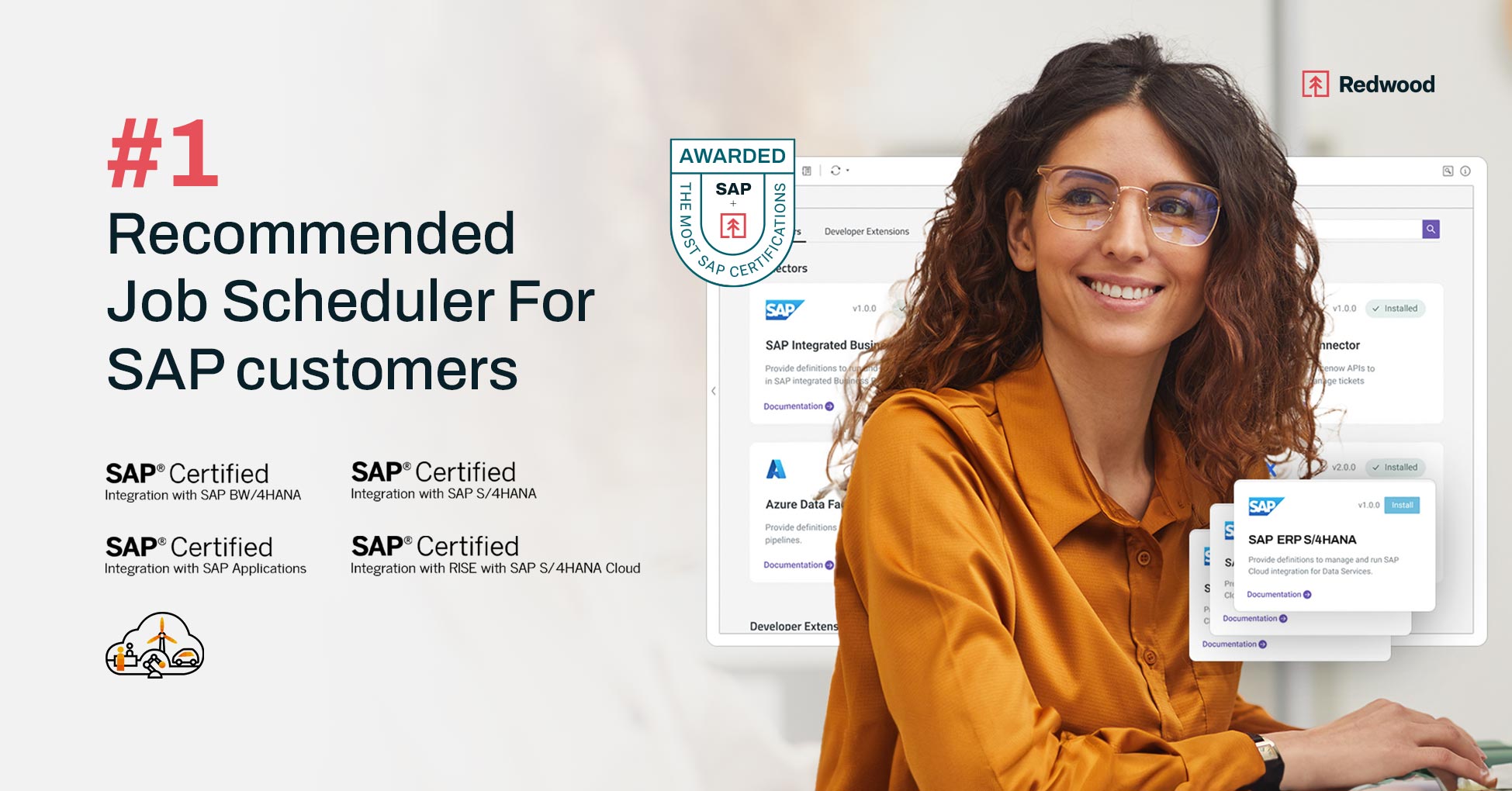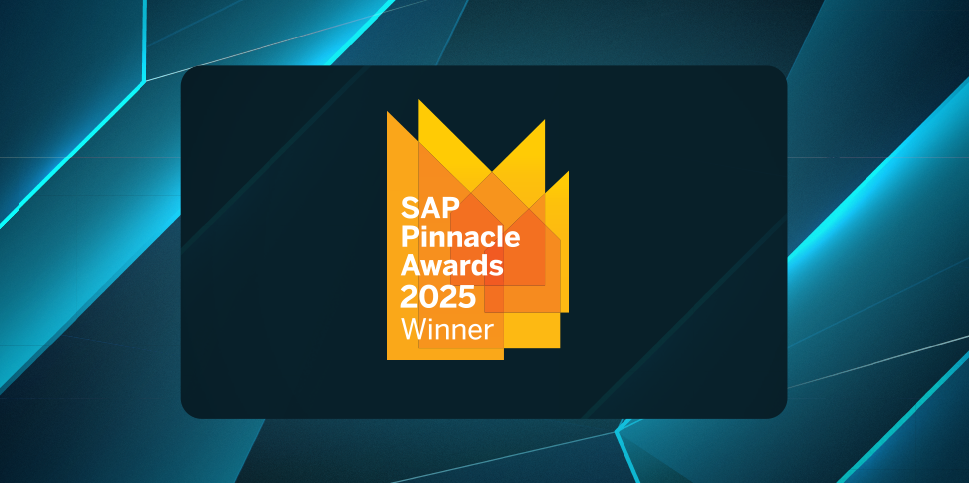Blog & Newsroom
Featured Blogs
-
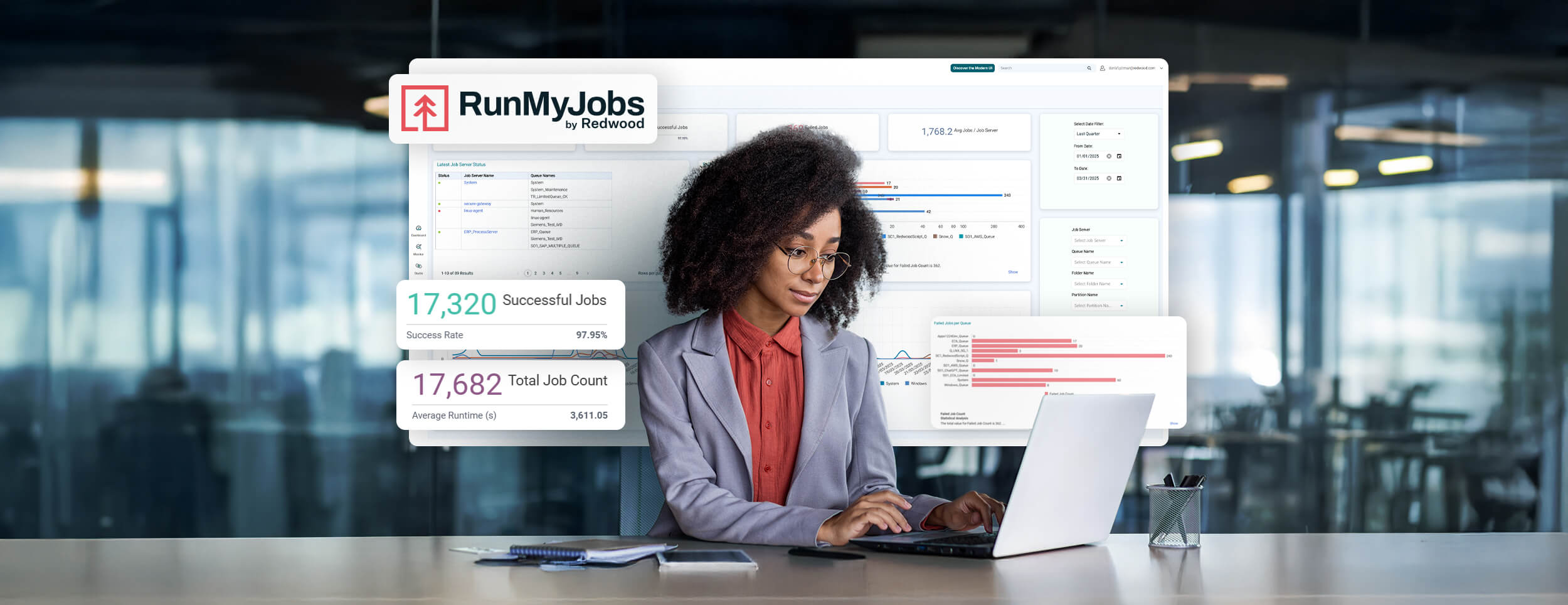 Product knowledge
Product knowledge -
-
-
 Managed file transfer
Managed file transferMeeting MFT security, reliability and compliance requirements with JSCAPE
Latest Content
-
 Digital transformation
Digital transformationAutomation at altitude: Orchestration becoming the runway for AI agility
Cloud, AI and data pipeline modernization efforts are accelerating, but without intelligent orchestration, complexity outpaces control. Explore why modern architecture is the foundation for enterprise agility in the AI era.
-
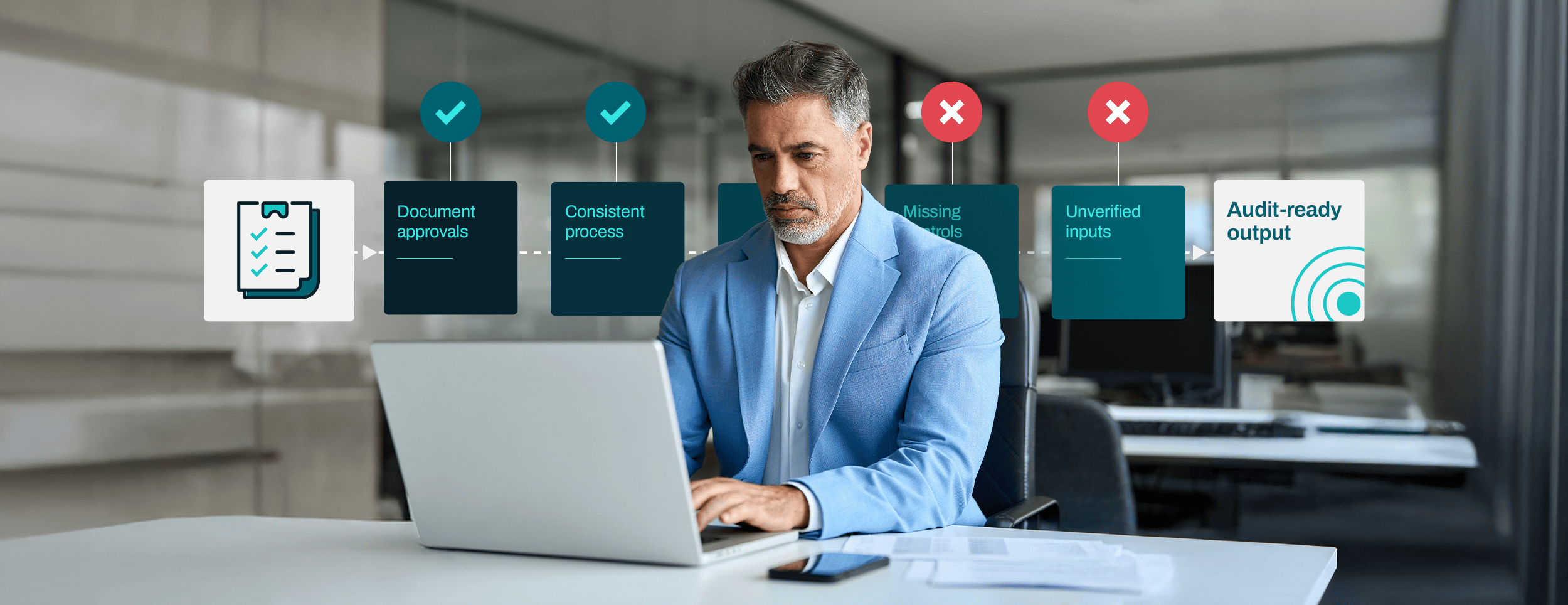 Finance automation
Finance automationWhy 39% of audits still fail — and what your accounting principles have to do with it
Nearly 40% of public company audits still fail — not because of fraud but because of lacking or outdated accounting principles. See how principles like objectivity and consistency break down in practice and how automation can restore the structure necessary for audit-readiness.
-
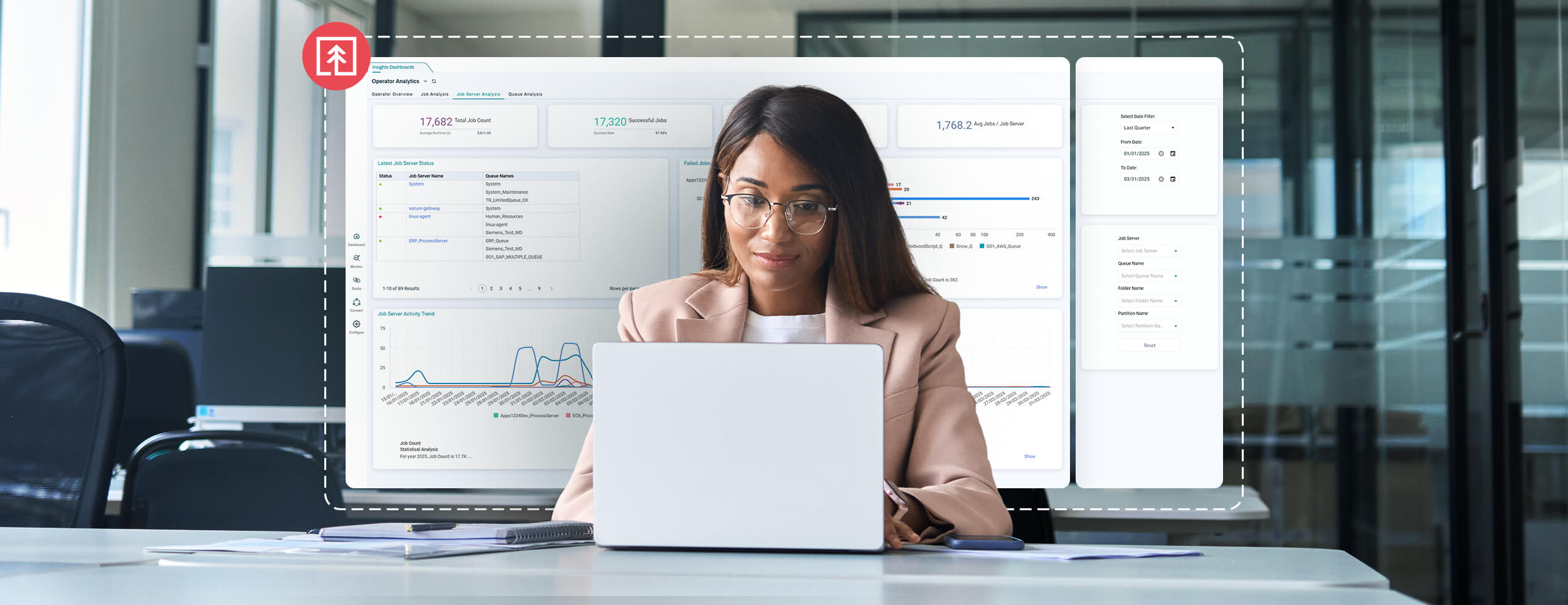 Product knowledge
Product knowledgeProactive problem management with Redwood Insights: Break the firefighting cycle
Redwood Insights empowers IT teams to move beyond reactive incident response and embrace proactive problem management through data-driven root-cause analysis. Learn how this built-in tool for RunMyJobs by Redwood helps prevent recurring failures, optimize performance and improve long-term service reliability.
-
 SAP
SAPSAP AI readiness: Why “maybe” isn’t an option for job scheduling modernization
AI can’t deliver business value without clean, real-time data, and that depends on the effectiveness of the automation feeding that data to AI models. Explore why modernizing job scheduling is essential for enterprises running SAP and non-SAP systems to unlock the full potential of AI and future-proof operations.
-
 Migration
MigrationBeyond lift-and-shift: Smart migration strategies for modern workload automation
Migrating your workload automation is a critical step in digital transformation, but it shouldn't be just a technical task. Learn how to use the migration as a strategic opportunity to drive business outcomes, improve operational efficiency and gain agility in the cloud.
-
 Product Pulse
Product PulseSAP Sapphire 2025: Redwood customers ready for SAP AI transformation
Showcased at SAP Sapphire 2025, Redwood customers like Southwest Gas and RS Group exemplify how modernizing with fit-to-suite workload automation delivers critical operational efficiency, directly paving the way for AI. Their successes in automating complex processes, such as meter-to-cash and global business operations processing, establish the data foundations and agile systems essential for making enterprise AI an actionable reality.
-
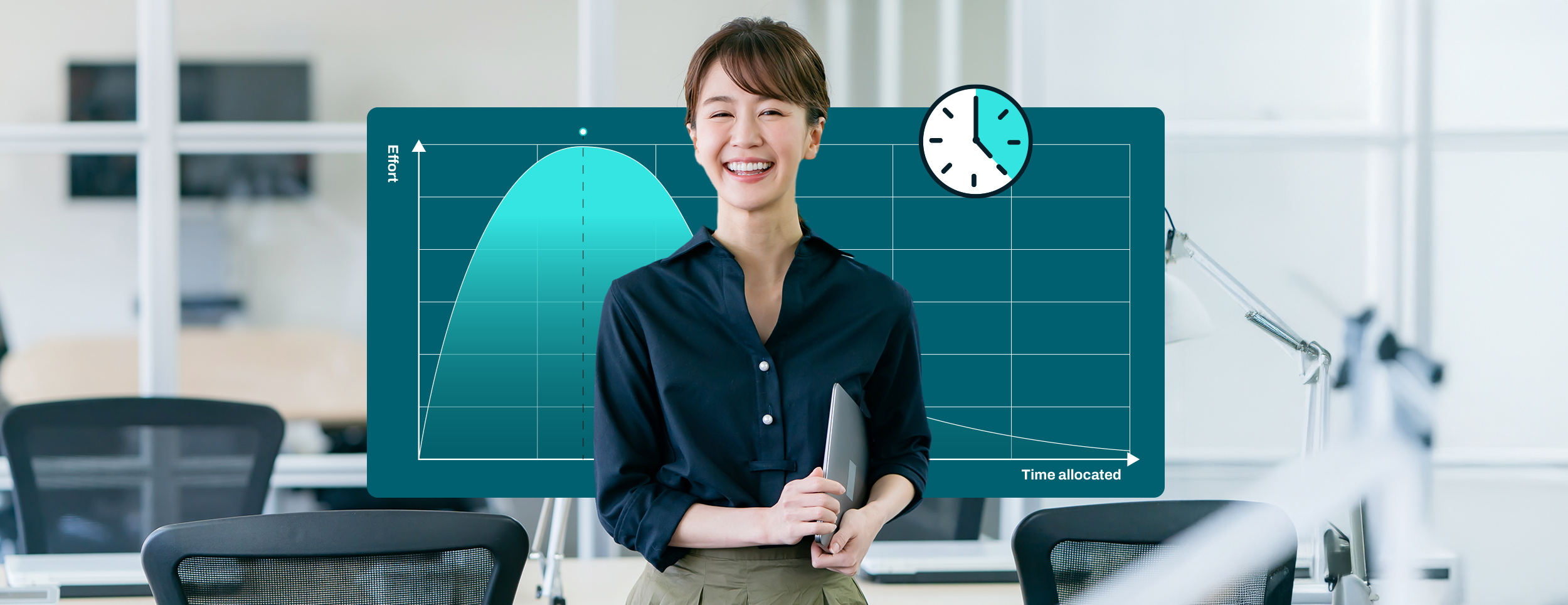 Finance automation
Finance automationBeating the clock (and Parkinson’s Law): Why automation is key to a better month-end close
Is Parkinson's Law subtly sabotaging your month-end close, leading to wasted time and potential errors? Embracing automation provides a direct countermeasure and empowers your finance teams to move beyond simply meeting deadlines and achieve true efficiency and control.
-
 SAP
SAPIntelligent data orchestration strategies for the hybrid finance landscape
Siloed data across SAP, cloud and legacy systems hinders reporting accuracy and compliance in financial institutions. See how an intelligent orchestration layer can connect and govern data flows for faster, safer and more auditable financial operations.
-
 SAP
SAPBridging R&D and clinical operations with frictionless SAP data pipelines
Disconnected SAP data hinders the potential of AI in life sciences, delaying drug discovery and clinical operations. Intelligent data orchestration provides a solution by creating frictionless pipelines that connect R&D and clinical processes, enabling efficient data flow for advanced analytics and regulatory compliance.
-
 Finance automation
Finance automationManual to magic: Agile automation for closing journal entries, account reconciliations and more
Revolutionize your financial close process by embracing agile automation for journal entries, account reconciliations and more key steps. Use this practical guide to transform tedious tasks into streamlined, efficient workflows through focused sprints and tangible wins.
-
 Finance automation
Finance automationWhen the real work begins: Maximize finance automation ROI
Unlock the full potential of your recent digital transformation by strategically empowering your Finance team to move beyond routine tasks and become true business partners. Learn actionable strategies to redefine the function’s role and drive significant business value.
-
 Product Pulse
Product PulseAnalytics in motion: Incorporating SAP Analytics Cloud into complex process cadences
To truly impact business outcomes, analytics must be seamlessly integrated into operational processes, moving beyond isolated dashboards. SAP Analytics Cloud, when orchestrated with a workload automation platform, enables analytics to align with your business rhythms, ensuring timely insights are delivered within complex processes so they drive informed decisions.
-
 SAP
SAPMeter to money: Automating the data journey behind every bill
Every utility bill hinges on a complex data journey that begins with meter readings and culminates in revenue recognition. Explore how automating and orchestrating this process, especially within SAP-centric environments, is crucial for efficient operations and cash flow and consistent customer satisfaction, particularly when facing fluctuating energy demands and evolving grid modernization demands.
-
 Support & success
Support & successCulture of curiosity: How software champions lead the charge on automation
Ignite your team's efficiency and your own career by embracing the power of continuous software learning, especially with automation platforms. Becoming a "learning champion" fosters a culture of proactive knowledge sharing, leading to increased productivity and stronger organizational impact.
-
 Product knowledge
Product knowledgeThe observable enterprise: Navigating complexity in workload automation
Gain complete control over your complex automation landscape by embracing observability principles using workload automation and SOAP platforms. Use the newly released add-on to RunMyJobs by Redwood, Redwood Insights, for unprecedented visibility, issue resolution and decision-making.
-
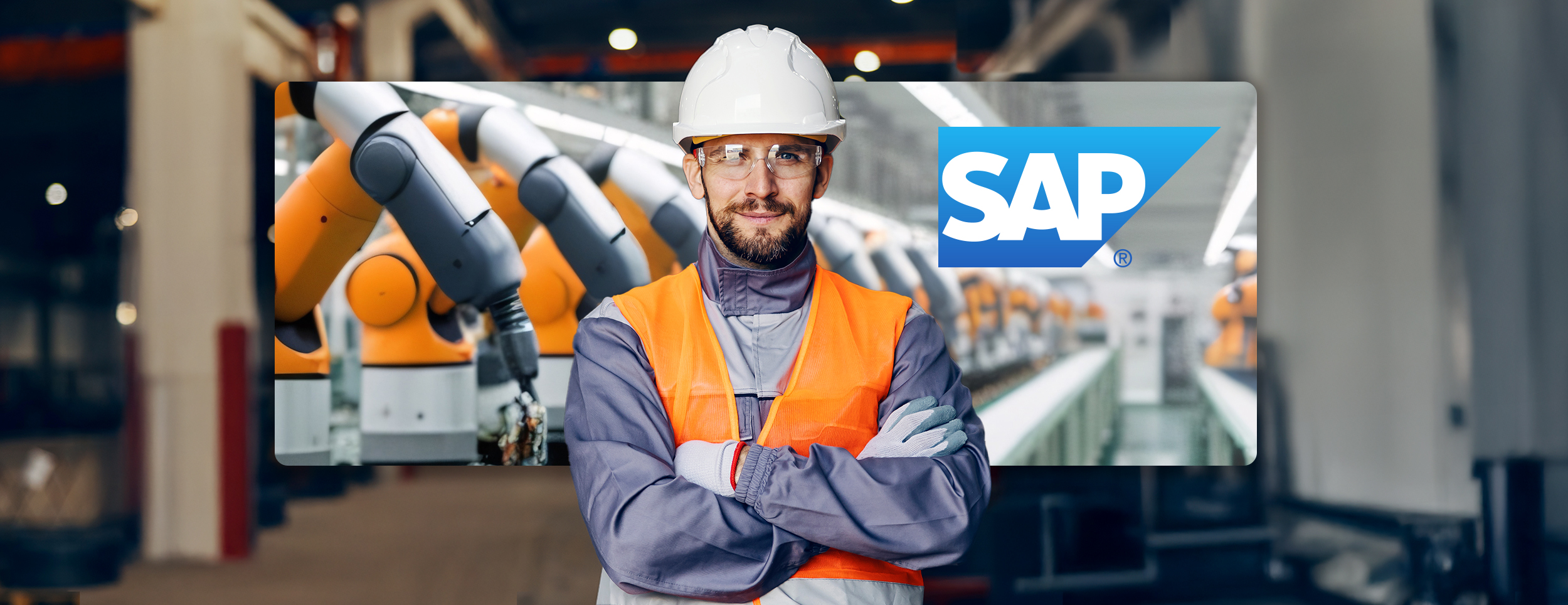 SAP
SAPThe automation fabric symphony: Harmonizing SAP data for precision manufacturing
Disconnected manufacturing data can hinder your Industry 4.0 goals. A unified automation fabric powered by SAP orchestration can harmonize your data, analytics and decisions to help you achieve precision manufacturing and a competitive edge.
-
 SAP
SAPResilience in retail: How to move your SAP data to minimize waste
Minimize waste and lost revenue in your retail operations by transforming your SAP data management with proven supply chain strategies. Orchestrate disparate data sources, gain end-to-end visibility and develop an automation fabric for responsive forecasting and replenishment to maximize efficiency and profitability.
-
 Managed file transfer
Managed file transferFile transfer strategy for RISE with SAP: Clean core, compliance and control
Establishing a robust file transfer strategy for large and high-volume transfers during your RISE with SAP transformation can help you adhere to clean core principles and ensure compliance down the road. Integrate workload automation with a dedicated MFT solution to simplify these transfers in your hybrid SAP environment.
-
 Finance automation
Finance automationRethinking finance tech: People, projects and purpose
If you’re frustrated by underperforming finance technologies, it’s time to reevaluate your approach by prioritizing people and processes over the allure of plug-and-play solutions. Find out how to incrementally implement automation to achieve meaningful and lasting finance transformation.
-
 SAP
SAPEscape the data maze: Your SAP data journey from source to insight
Tired of SAP data silos, inconsistent reporting and missed opportunities? Discover how a purpose-built orchestration layer can unify your SAP and non-SAP systems, automating data flow and providing real-time insights to drive better decisions and future-proof your enterprise.
-
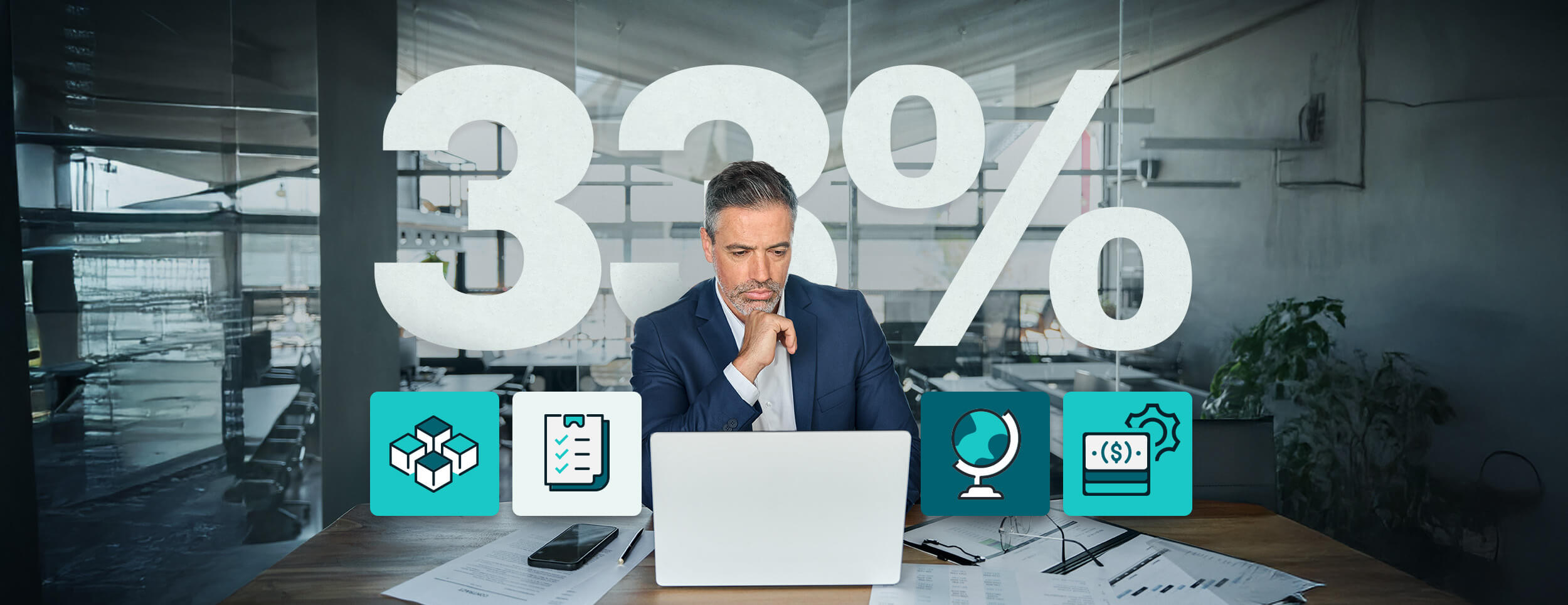 Finance automation
Finance automationThe 33%: What finance leaders know but aren’t implementing
Despite 91% of finance leaders acknowledging the potential for R2R automation, only 58% have implemented it, highlighting a significant gap between awareness and action. Barriers like legacy system integration and perceived high costs necessitate a strategic, holistic approach to overcome the 33% implementation deficit and realize the full ROI of automation.
-
 Finance automation
Finance automationR2R reality check: Research shows automation lags despite demand
Despite overwhelming agreement among finance leaders that automation is crucial for efficient record-to-report (R2R) processes, research reveals a significant gap between this perception and the actual implementation, with many organizations still relying on manual efforts. Explore the reasons behind this lag and access the full report.
-
 SAP
SAPAutonomous SAP production planning — Produce more faster and maintain quality
Disconnected systems and manual processes are crippling modern manufacturing, leading to production delays, increased costs and quality issues. Intelligent orchestration with advanced workload automation complementing your SAP solutions offers you a coordinated framework that connects and synchronizes your data, processes and systems.
-
 Redwood Software
Redwood SoftwareIntroducing Redwood’s AI assistant: Instant answers, easier automation
Redwood Software’s new AI assistant delivers instant, conversational answers to your questions about Redwood products. Get faster troubleshooting and boost your productivity with this intuitive tool.
